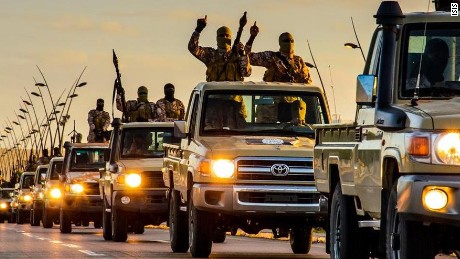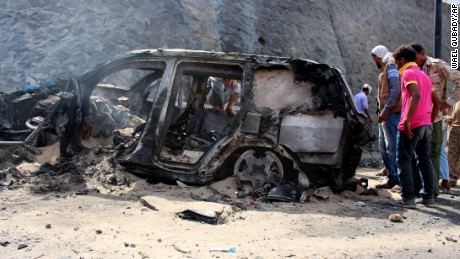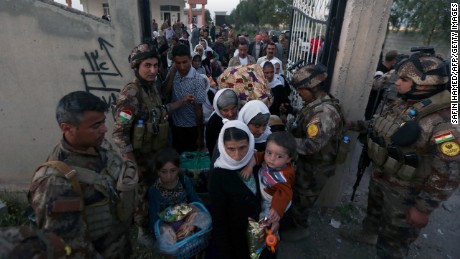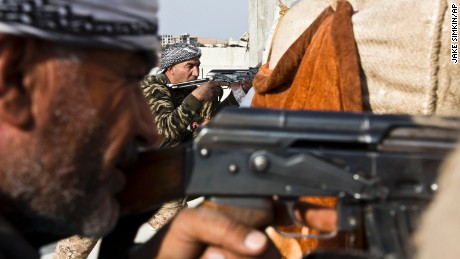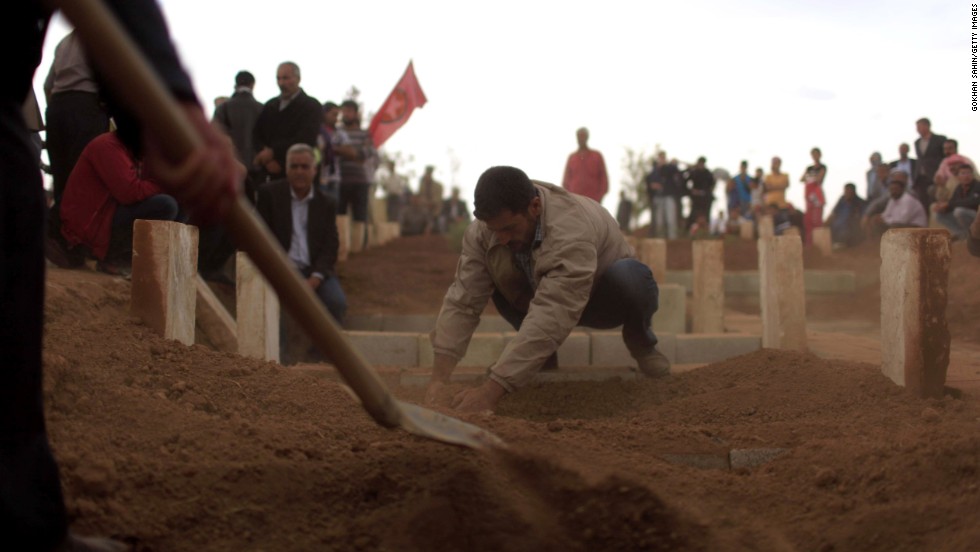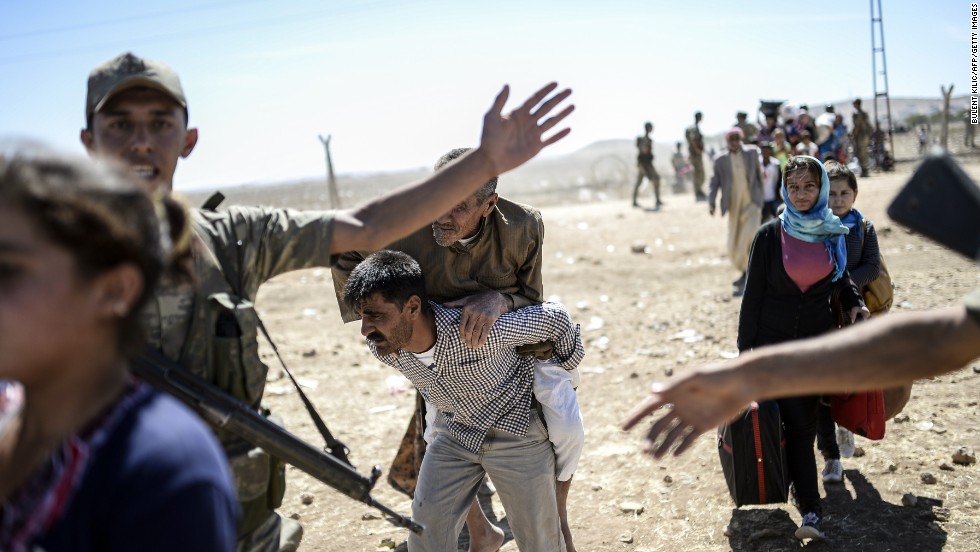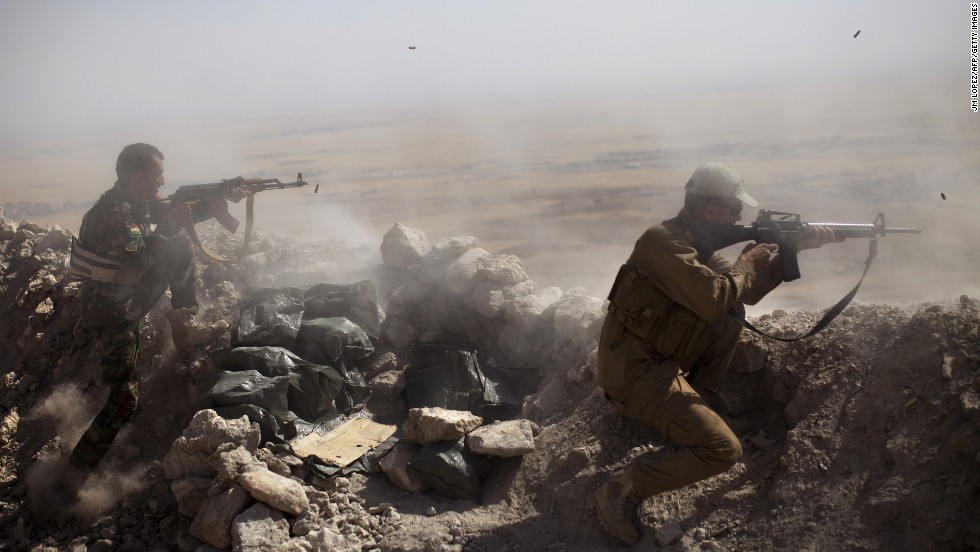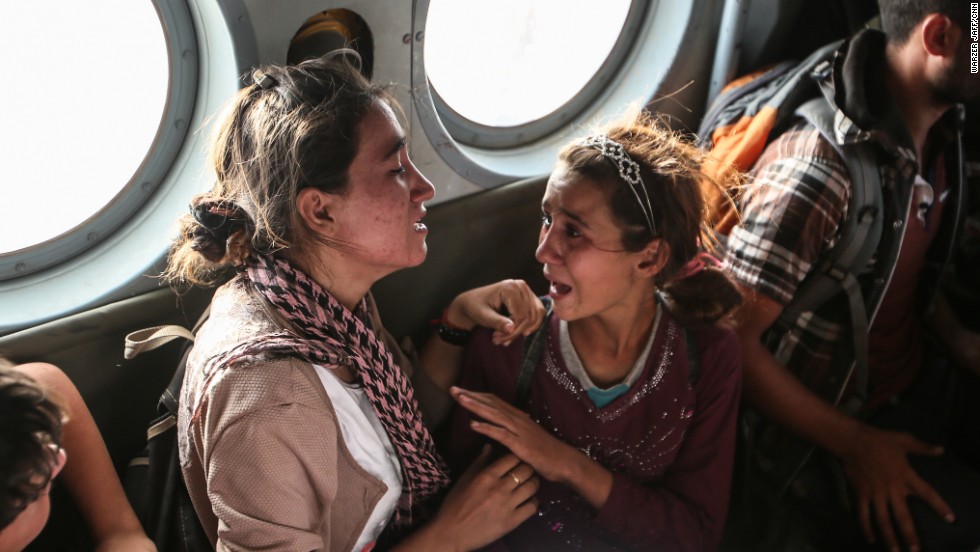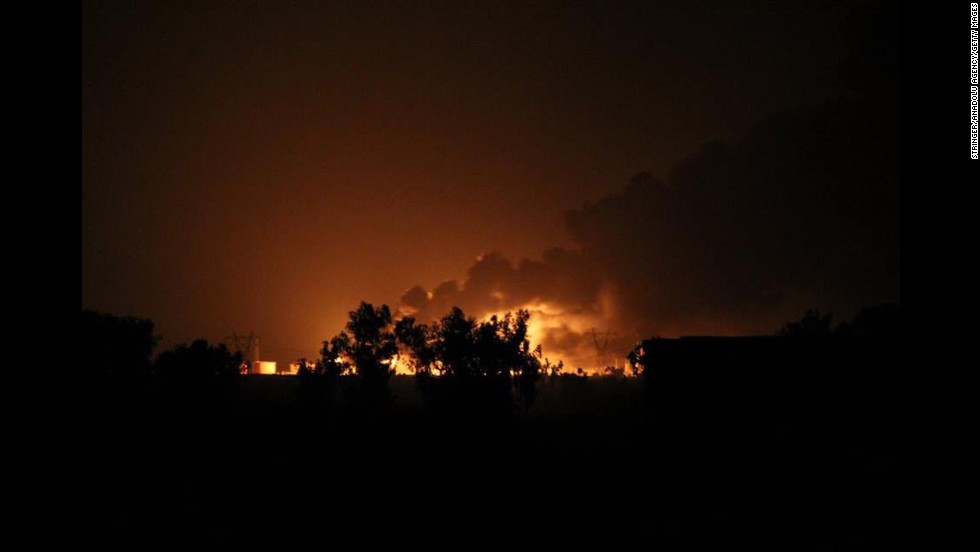Story highlights
- Peter Bergen: ISIS leaps from obscurity to lead global jihadist movement in 18 months
- He says ISIS preys on the weaknesses of regimes in Iraq, Syria, Egypt and Libya
- Bergen: Supporters will see group moving closer to its goals if indeed an ISIS bomb blew up Russian plane in Sinai
Peter Bergen is CNN's national security analyst, a vice president at New America and a professor of practice at Arizona State University. He is the author of "Manhunt: The Ten-Year Search for bin Laden -- From 9/11 to Abbottabad."
(CNN)Whether or not ISIS brought down Metrojet Flight 9268 in the Sinai Peninsula, the terrorist group has catapulted itself from obscurity to lead the global jihadist movement in just 18 months.
ISIS controls territory in Syria and Iraq that by some estimates is the size of the United Kingdom, and it lords over millions of people in both countries.
The group has also secured pledges of allegiance from two dozen militant organizations from around the Muslim world, including in the Sinai and Egypt's neighbor Libya, while around 10 other groups have declared some form of solidarity with ISIS.
The key to ISIS' success is not the group's military strength -- ISIS in Syria and Iraq may number only about 20,000 to 30,000 fighters -- but the weaknesses of the regimes where the group is doing well.
Think of the Sunni militant group ISIS as a pathogen that preys on weak hosts in the Muslim world.
In 2014 ISIS seized huge swaths of Iraq, exploiting the fact that the country had been in a civil war for more than a decade and the Iraqi government had pursued a policy of excluding Sunnis from power.
ISIS is one of the most powerful players in Syria because the country has been embroiled in a civil war since 2011 and the regime of Bashar al-Assad has imposed a reign of terror on its Sunni population, including the use of chemical weapons and widespread torture. For the moment, ISIS and the countries allied against it, including the United States, have come to something of a stalemate in Iraq and Syria.
Gadhafi ouster created vacuum
However, ISIS also has a significant foothold in Libya because the country is embroiled in a civil war, which was instigated by the U.S.-led overthrow of Libyan dictator Moammar Gadhafi four years ago. (This move may turn out to be the most significant foreign policy blunder of the Obama administration as there was no serious American plan for what would follow Gadhafi -- the same negligence that had characterized George W. Bush's overthrow of Iraqi dictator Saddam Hussein.)
ISIS is growing in Egypt because a military dictator who seized power in a coup leads the country, and he has brutally quashed all forms of dissent, including criminalizing the Muslim Brotherhood, which has many millions of members in Egypt and had formed the previous government. It's fertile soil for ISIS, which had done particularly well in the Sinai, leading an insurgency there that has killed hundreds.
Although it has not enjoyed any of the kind of success that ISIS has, al Qaeda is also benefitting from the crisis of governance that has gripped much of the Middle East since the Arab Spring in 2011. The civil war in Yemen precipitated by the Arab Spring has boosted al Qaeda in the Arabian Peninsula, which is expanding its operations in southern Yemen.
Al Qaeda is also enjoying something of a comeback in the place from which it launched the 9/11 strikes: southern Afghanistan. The combination of a weak central government and the sharp drawdown of U.S. and NATO forces from Afghanistan has provided an opening for the group. Last week U.S. and Afghan forces in Kandahar province destroyed "probably the largest" al Qaeda training camp discovered during the 14-year Afghan War, according to Gen. John Campbell, the U.S. commander in Afghanistan.
5 ways ISIS gains
In addition to the opportunities that weak governments and civil wars in the Muslim world provide to ISIS, the group also benefits from five other factors.
First, it is victorious. It might seem tautological to say that ISIS is doing well because it is doing well, but that is surely part of its appeal. ISIS released a video in the summer of 2014 showing a bulldozer breaking down the great sand berm that demarcated the Iraq-Syrian border first established by Britain and France in their secret agreement to carve up the Ottoman Empire following the end of World War I. It was ISIS' symbolic first step toward its goal of expunging all vestiges of Western influence in the Arab world over the past century. Al Qaeda could only have dreamed of such a victory.
Second, ISIS adeptly plugs into a strain of apocalyptic thinking in Islam and has positioned itself as the vanguard instigating the final showdown between the West and Islam. ISIS' distinctive black flags are a reference to a hadith, a saying of the Prophet Mohammed: "If you see the black banners coming from the direction of Khorasan, then go to them, even if you have to crawl, because among them will be Allah's Caliph the Mahdi." In other words, from Khorasan -- an ancient term for the region that now encompasses Afghanistan -- will come an army bearing black flags that includes the Mahdi, the Islamic savior of the world.
Even the name of ISIS's English-language webzine, Dabiq, is an allusion to ancient prophecy; some believe the Prophet Mohammed predicted the Syrian town of Dabiq to be the site of the final battle between the armies of Islam and "Rome," which will occasion the end of time and the triumph of true Islam.
Third, after seizing the second-largest city in Iraq, Mosul, ISIS leader Abu Bakr al-Baghdadi named himself caliph, which meant that in his own mind and in the eyes of his followers he was not only the leader of ISIS but of Muslims everywhere. For true believers in ISIS' message, it's a religious obligation to join the caliphate that Baghdadi leads.
Fourth, if al Qaeda was the Harvard of terrorist groups, an elite institution with relatively few members -- only around 200 at the time of the 9/11 attacks -- ISIS accepts all comers, enabling it to build insurgent armies in Iraq and Syria and to attract an estimated 1,000 "foreign fighters" a month that continue to pour in from around the Muslim world as well as to bring on board its many affiliates.
Fifth, ISIS is virulently anti-Shia and is a symptom of the deepening tensions between the Shiite and Sunni sects of Islam across the Arab world that is driven, in part, by substantial Iranian and Gulf state funding. ISIS can position itself to Sunnis that it is the most effective wager of war against Shiites as it battles both Hezbollah in Syria and the Shia-Alawite regime of Assad as well as the Iran-backed Iraqi government.
Al Qaeda split
Right now al Qaeda and ISIS are at odds about who leads the global jihadist movement, but the real nightmare for counterterrorism officials is if the two groups were to reunite. After all, the parent of ISIS was al Qaeda in Iraq, which less than two years ago was part of al Qaeda.
The split between the two groups in early 2014 was largely driven by personal differences rather than any fundamental disagreements about their end goals, which are to establish Taliban-style rule from Indonesia to Morocco and to end all Western influence in the Muslim world.
If, as U.S. officials say their intelligence suggests and ISIS asserts, it was indeed an ISIS bomb that blew up Metrojet Flight 9268 the group will be seen by its growing numbers of supporters as bringing those goals a little closer.













